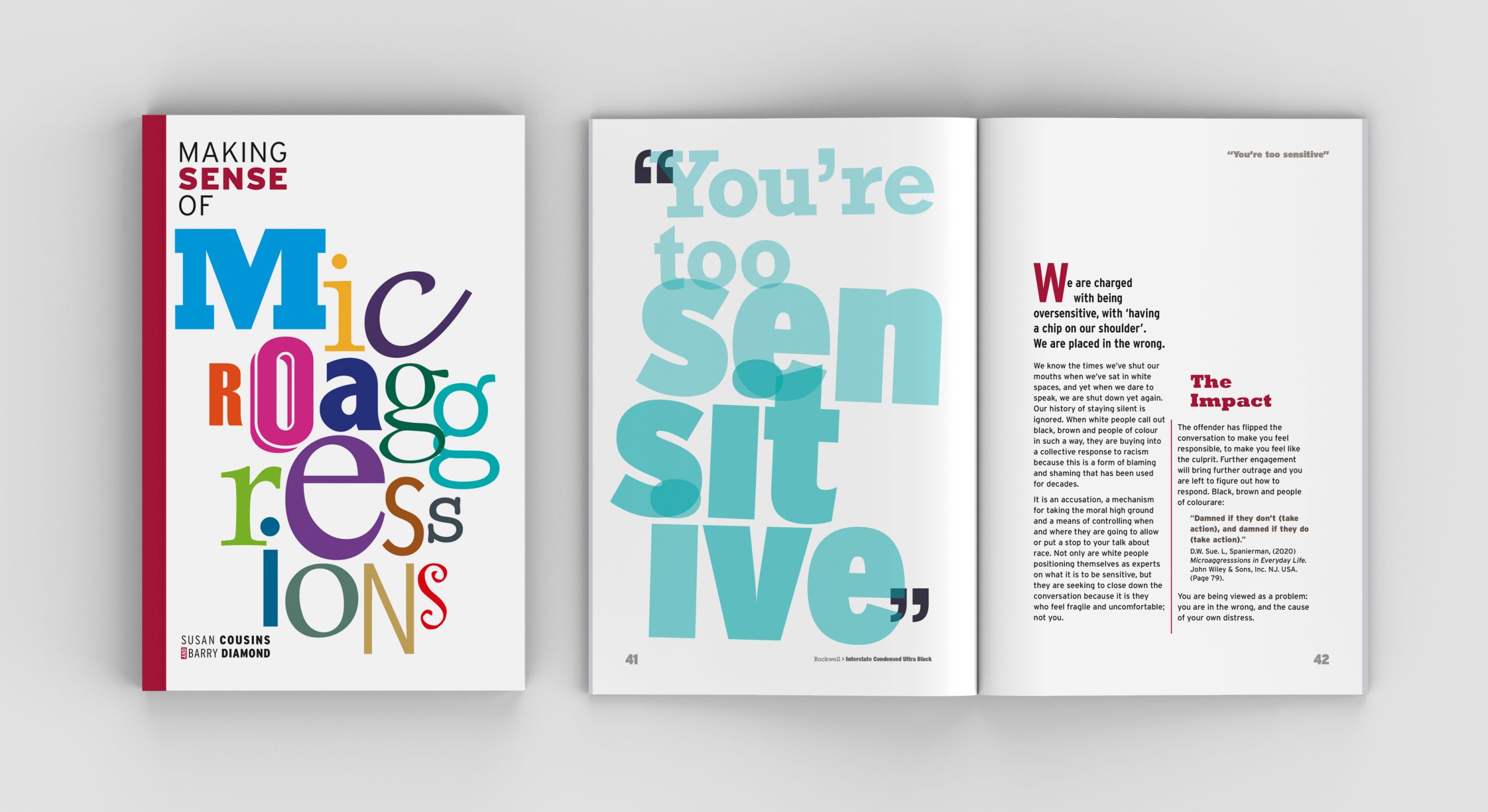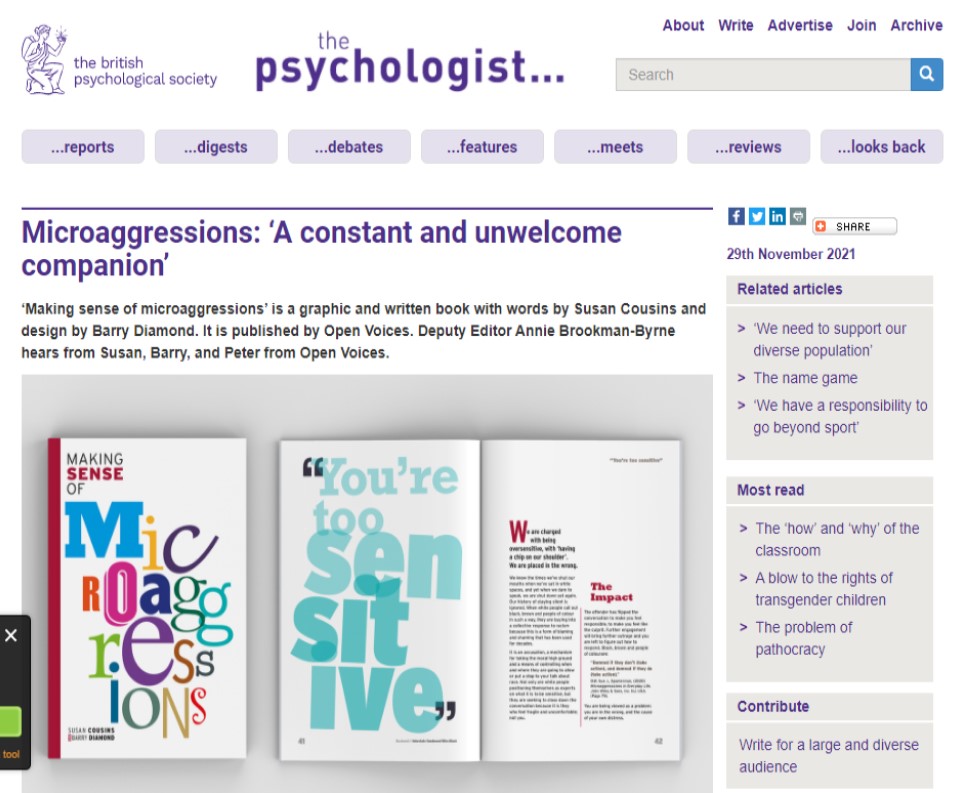Micro-aggressive behaviour
29 November 2021
Chester Middlebrook Pierce described microaggressions as “subtle, stunning and often automatic non-verbal exchanges which are put-down”. They are forms of everyday oppression that tend to go unseen and unacknowledged. Sometimes they are based on ignorance but sometimes they are based on a desire to harm (Cousins & Diamond, 2021).
We all need to reflect on our behaviour, educate ourselves and work positively to eliminate behaviour that leads to exclusion, undermining and offending others. The initial description was based around racist microaggressions. Similar behaviour has been identified focussed around gender, religion and the Welsh language.
Cardiff University is committed to all aspects of equality, diversity and inclusion. As a member of Cardiff University, all staff and students are required to respect each other. Expectations are detailed in the Dignity at Work and Study Policy and the Student Charter.
If you are subjected to micro-aggressive behaviour, we recommend that you:
- Seek support: An essential first step is to speak with someone. This will help give you clarity, and start to build confidence to deal with the issue. If you speak to someone, the person should be someone you trust and feel comfortable with, who will actively and patiently listen to you and not rush to judgement. Cardiff University service can help.
- Keep a record: A record of incidents can help to debrief and process a situation. It is also helpful if behaviour becomes a pattern and will need further action.
- Challenge behaviour (if possible and safe to do so): It really depends on your sense of safety and the power dynamic in the environment where this occurs. A calm and non-confrontational approach can work well. This gives the other person a chance to apologise, reflect and learn. Focus on the behaviour rather than the person and use ‘I…’ rather than ‘you…’ statements. For example, saying something like ‘When you said… I felt…’ rather than ‘you’re a racist’ or ‘you’re a bully’ which may make them feel immediately defensive, close down the conversation and escalate conflict.
- Report behaviour and complain: The School of Medicine has various mechanism for reporting. Cardiff University has a Disclosure Response Tool that is available through the Internet. This allows anonymous and third party reporting too.
If you witness micro-aggressive behaviour, our suggestion is that you consider the ABC approach
- Assess for safety: if you see someone in trouble, ask yourself if you can help safely in any way.
- Be in a group: it is safer to call out behaviour or intervene in a group, and where this is not possible, report the behaviour to others who can act.
- Care for the person who may need help, and ask them if they are okay.
If your behaviour is called to account, it is likely that you have been provided with a very good learning opportunity. We recommend that you:
- Apologise unreservedly.
- Don’t justify your behaviour
- Reflect on why your behaviour was misinterpreted
- Identify and use learning resources to prevent this from occurring again
Some more resources:
What exactly is a microaggression?
“Making Sense of Microaggressions” by Susan Cousins & Barry Diamond

Racial Microaggressions in Everyday Life
Microaggressions: More Than Just Race
Respect my ethnic name: https://www.anpu.london/name
Where are you from? https://www.youtube.com/watch?v=crAv5ttax2I
Read the Cardiff University Student Charter
British Medical Association Charter for the Prevention of Racial Harassment
What’s the public sector equality duty?
Some of the material on this page is adapted from the BMA Charter for the Prevention of Racial Harassment.
- November 2024
- June 2024
- May 2023
- September 2022
- August 2022
- February 2022
- January 2022
- November 2021
- November 2020
- September 2020
- July 2020
- June 2020
- May 2020
- November 2019
- June 2019
- May 2019
- December 2018
- June 2018
- November 2017
- June 2017
- July 2016
- June 2016
- April 2016
- October 2015
- July 2015
- April 2015
- March 2015
- February 2015
- January 2015
- November 2014
- October 2014
- August 2014
- March 2014
- November 2013
- August 2013
- July 2013